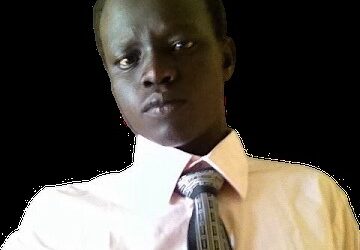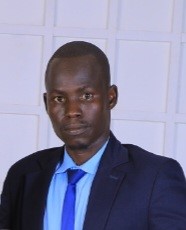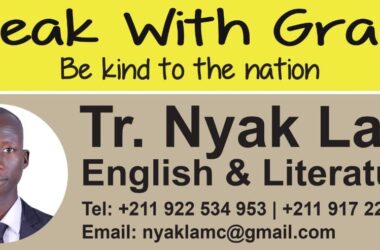
By Malek Arol Dhieu
May 3rd marks the World Press Freedom Day. Ladies and gentlemen of the press should unite and entangle to become much stronger to liberate themselves from the chain of brutality, arbitrary arrest, harassment and assassination. I know it takes years (as many years as a civil war could take) for liberation to effect, but the years taken by the press to see positive results of its struggle are too many for the history to accommodate.
But because it is a weaponless war, it has to be fought again and again until the best results are achieved. Press comes the 4th power in the country after Executives, Judiciary and Legislature, but the reason it is treated as such remains a research to conduct for years.
In commemoration of this day, journalists who have perished while executing their journalistic profession are remembered; therefore it is a day to mourn again for them. To late journalists who died naturally or as a result of illnesses, rested in Eternal Peace are their souls, but to those assassinated, their souls always stand beside the living journalists in fight for the total freedom of the press worldwide.
If the assassinated journalists were to resurrect today and find their colleagues still intimidated, they would once again die of heart attack because they thought their death had brought freedom to living journalists while it had not. Worldwide, journalists encounter harassments on daily basis, which I think should be the main grievance to address on the commemoration day.
Every profession, when exercised perfectly, is deathful but that of journalism requires no death as it deals with digging out the information and publish it while taking into account ethics of journalism. Code of conduct and ethicality of journalists in fulfilling the right of the public to be informed are capacitated right from the time journalism is studied as a course, hence it takes every journalist less than two seconds to unlock his/her medulla oblongata in remembrance of the ethics and behavioural patterns of journalism.
One annoying scenario to be ceased immediately following this particular commemoration day is the invitation of the members of press and their harassment upon arrival to the scene where they are invited, what does that tell the world? It tells the world the intentionality of their intimidation, which to me and to any other learnt fellow, has no difference with their being left uninvited.
Assuming you have invited a historian with an intention of allowing him/her note key points to help him/her expand the whole history of you, and in the process of jotting them down, you disarm him/her of a notebook, pen and camera. How happy still would he/she be to perform that professional duty?
To make matters worse, two or three institutions that have collaborated to launch an initiative may harass invited journalists without any of them remembering how it disgraces one to invite and harass concurrently.
Press, whether in South Sudan or elsewhere in the world, functions to aware the public of the happenings and helps historians in recording events. The fact that it is an enormous employer, aiding the government on the other hand in combating unemployment, cannot even be talked about, leave alone its significance in nation building by strengthening the country’s information development.
Having talked much about the difficulties journalists face and the importance of the press, I therefore take this opportunity to cordon all journalists worldwide that little improvement has been made to allow journalists exercise freely. Broadening that little improvement remains your task of years to pave a way for the independence of the press.
To the government, I should say it does not bring shame to create a history by becoming the first country to allow the press operate independently because what happens to journalists in South Sudan is what happens to journalists in the rest of the world, thus there is need for self-determination. Press should totally be free. Happy World Press Freedom Day!
The author is a medical student, University of Juba.



